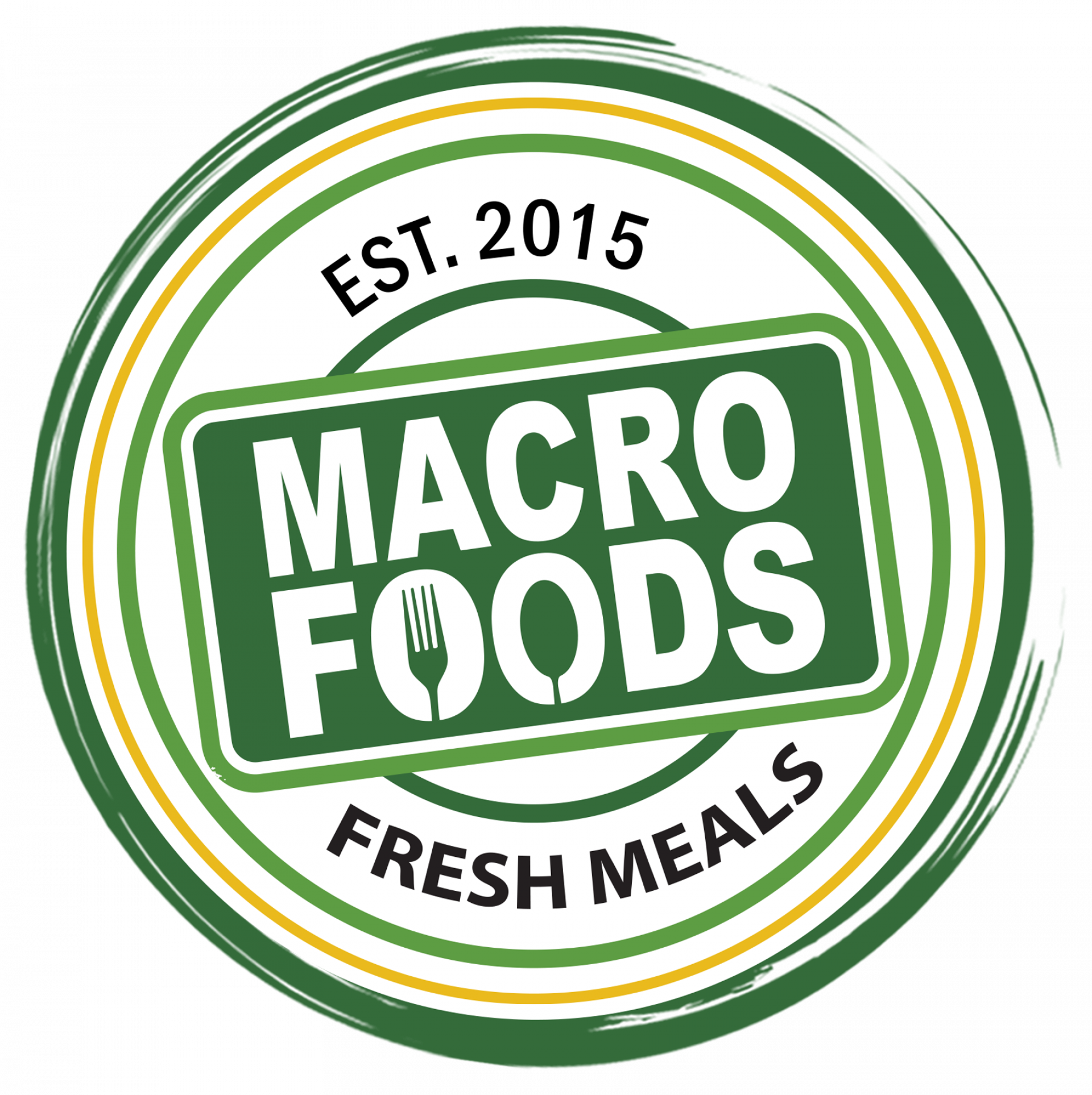
Key Highlights
- Healthy eating is essential for overall wellness, and Macro Foods explores the science behind the planet's healthiest foods.
- A meal plan that incorporates these nutrient-dense foods is key to maintaining a balanced and nutritious diet.
- Grocery shopping with a focus on whole, unprocessed foods is the best way to support your health and well-being.
- Macro Foods offers high-quality meals that are designed to deliver the nutritional power of these superfoods right to your doorstep.
- With the goal of promoting a healthier planet, Macro Foods prioritizes sustainable farming practices and eco-friendly packaging.
Introduction
Welcome to the world of wellness, where Macro Foods takes you on a journey to explore the science behind the planet's healthiest foods. In this blog, we will delve into the nutritional powerhouses that can boost your well-being and support a healthy lifestyle. From leafy greens to ancient grains, we will uncover the secrets behind these superfoods and their role in promoting optimal health.
At Macro Foods, we believe that healthy eating is the foundation of wellness. By making informed choices about the foods we consume, we can nourish our bodies and support our overall well-being. And that's where the science comes in. By understanding the nutritional composition of different foods, we can make informed choices about what to include in our diet.
In this blog, we will explore the science behind the planet's healthiest foods and how they contribute to our well-being. We will delve into the nutritional content, health benefits, and ways to incorporate these foods into your daily diet. Whether you're looking to boost your immune system, support weight loss, or simply lead a healthier lifestyle, this blog has got you covered.
So join us as we uncover the science behind these superfoods and take a step towards a world of wellness with Macro Foods.
Exploring the Science Behind the Planet's Healthiest Foods
When it comes to healthy eating, it's important to focus on nutrient-dense foods that provide a wide range of vitamins, minerals, and antioxidants. The planet's healthiest foods are often packed with these essential nutrients, making them a powerhouse of wellness. From leafy greens to berries, nuts and seeds to lean proteins, each food group has its own unique nutritional profile that contributes to overall health. In this section, we will explore the science behind these foods and uncover the specific benefits they offer.
1. The Nutritional Powerhouse of Leafy Greens

Leafy greens are a nutritional powerhouse, providing a wide range of essential nutrients that are important for overall health. These vegetables, such as spinach, kale, and Swiss chard, are low in calories but high in vitamins, minerals, and fiber. They are a great source of vitamin K, vitamin A, vitamin C, and folate. Additionally, leafy greens are rich in antioxidants, which help protect the body against oxidative stress and inflammation. They are also a good source of plant-based protein, making them an excellent choice for vegans and vegetarians. Incorporating leafy greens into your diet can support immune function, promote healthy digestion, and contribute to overall wellness.
2. Whole Grains: A Staple for Health and Wellness
Whole grains are an essential part of a healthy diet, providing a good source of fiber, vitamins, minerals, and antioxidants. Unlike refined grains, which have been stripped of their nutrient-rich bran and germ, whole grains retain these valuable components. This makes them a better choice for supporting digestive health, maintaining stable blood sugar levels, and promoting satiety. Whole grains are also low in net carbs, making them suitable for those following a low-carb or keto diet. Incorporating whole grains such as quinoa, brown rice, and oats into your meal plan can provide sustained energy, support weight management, and contribute to overall wellness.
3. Berries: Nature's Antioxidant-Rich Gems
Berries are not only delicious, but they also pack a punch when it comes to antioxidants. These vibrant fruits, such as blueberries, strawberries, and raspberries, are rich in disease-fighting compounds that help protect the body against oxidative stress and inflammation. Berries are also low in calories and carbs, making them a guilt-free sweet treat that can be enjoyed as part of a balanced diet. In addition to their antioxidant properties, berries are a good source of fiber, vitamins, and minerals. Including a variety of berries in your diet can support brain health, boost immune function, and promote healthy aging.
4. Nuts and Seeds: Essential Fats and Proteins
Nuts and seeds are not only delicious, but they also offer a wealth of nutritional benefits. They are rich in healthy fats, such as omega-3 fatty acids and monounsaturated fats, which are important for heart health and brain function. Nuts and seeds are also a good source of plant-based protein, making them an excellent choice for vegans and vegetarians. Additionally, they provide a wide range of vitamins, minerals, and antioxidants. Including a variety of nuts and seeds, such as almonds, walnuts, chia seeds, and flaxseeds, in your diet can support satiety, promote healthy cholesterol levels, and contribute to overall wellness.
5. Legumes: The Heart-Healthy Choice
Legumes, such as beans, lentils, and chickpeas, are a heart-healthy choice that offers a range of nutritional benefits. They are an excellent source of plant-based protein, fiber, vitamins, and minerals. Legumes are also low in fat and cholesterol, making them a great option for those looking to support weight loss and maintain a healthy heart. The high fiber content of legumes can also support digestive health, promote satiety, and help regulate blood sugar levels. Including a variety of legumes in your diet can provide sustained energy, support a healthy gut microbiome, and contribute to overall wellness.
6. Fermented Foods: Gut Health Heroes

Fermented foods have gained popularity in recent years due to their potential benefits for gut health. These foods, such as yogurt, sauerkraut, and kimchi, are rich in probiotics, which are beneficial bacteria that support a healthy gut microbiome. A healthy gut microbiome is essential for optimal digestion, nutrient absorption, and immune function. Fermented foods are also a good source of vitamins, minerals, and antioxidants. Including fermented foods in your diet can support gut health, improve digestion, and promote overall wellness. Whether you enjoy a bowl of yogurt in the morning or add sauerkraut to your salads, incorporating fermented foods into your meal plan can have a positive impact on your gut health.
7. Healthy Fats: Avocados and Olive Oil
Healthy fats, such as those found in avocados and olive oil, are an essential part of a balanced diet. These fats, known as monounsaturated fats, have been shown to support heart health, brain function, and overall well-being. Avocados are also a good source of fiber, vitamins, and minerals. Olive oil is rich in antioxidants, which help protect the body against oxidative stress and inflammation. Including healthy fats in your diet, such as avocados and olive oil, can support a healthy weight, promote brain health, and contribute to overall wellness. Whether you enjoy avocado toast or drizzle olive oil over your salads, incorporating healthy fats into your meal plan is a delicious way to support your health.
8. Lean Proteins: Building Blocks of a Healthy Diet
Lean proteins, such as chicken, fish, and tofu, are the building blocks of a healthy diet. They provide essential amino acids that are important for muscle growth, repair, and maintenance. Protein is also important for supporting a healthy metabolism, promoting satiety, and regulating blood sugar levels. Lean proteins are also a good source of vitamins and minerals, such as iron, zinc, and B vitamins. Including a variety of lean proteins in your diet can support muscle growth and repair, promote weight management, and contribute to overall wellness.
9. Cruciferous Vegetables: Cancer-Fighting Powerhouses
Cruciferous vegetables, such as cauliflower, broccoli, and Brussels sprouts, are known for their cancer-fighting properties. These vegetables are rich in antioxidants, which help protect the body against oxidative stress and inflammation. They are also a good source of fiber, vitamins, and minerals. Cruciferous vegetables are low in calories and carbs, making them a great addition to a low-carb or keto diet. Including cruciferous vegetables in your diet can support detoxification, promote healthy digestion, and contribute to overall wellness. Whether you enjoy roasted cauliflower or add broccoli to your stir-fries, incorporating cruciferous vegetables into your meal plan is a delicious way to support your health.
10. Superfruits: Exotic and Nutrient-Dense Options
Superfruits, such as acai berries, dragon fruit, and pomegranates, are exotic and nutrient-dense options that offer a range of health benefits. These fruits are packed with vitamins, minerals, and antioxidants, which help protect the body against oxidative stress and inflammation. Superfruits are also low in calories and carbs, making them a great addition to a balanced diet. Including superfruits in your diet can support immune function, promote healthy skin, and contribute to overall wellness. Whether you enjoy acai bowls or add dragon fruit to your smoothies, incorporating superfruits into your meal plan is a delicious way to nourish your body.
11. Ancient Grains: Quinoa, Amaranth, and More
Ancient grains, such as quinoa, amaranth, and millet, are gaining popularity due to their nutritional benefits and gluten-free status. These grains are a good source of fiber, vitamins, and minerals, and they offer a unique nutritional profile compared to modern grains. Ancient grains are also rich in antioxidants, which help protect the body against oxidative stress and inflammation. Including ancient grains in your diet can support digestion, promote satiety, and contribute to overall wellness. Whether you enjoy quinoa salads or experiment with amaranth in your baking, incorporating ancient grains into your meal plan is a delicious way to add variety and nutrition to your diet.
12. Sea Vegetables: Iodine-Rich Algae and Seaweeds

Sea vegetables, such as nori, kelp, and dulse, are a rich source of iodine and other essential minerals. Iodine is important for thyroid function, which plays a key role in metabolism and overall well-being. Sea vegetables are also rich in antioxidants, which help protect the body against oxidative stress and inflammation. Including sea vegetables in your diet can support thyroid health, promote healthy hair and nails, and contribute to overall wellness. Whether you enjoy sushi rolls or add kelp flakes to your soups, incorporating sea vegetables into your meal plan is a delicious way to boost your iodine intake and support your health.
The Science of Superfoods
Superfoods have gained popularity in recent years due to their potential health benefits. These nutrient-dense foods are rich in vitamins, minerals, antioxidants, and other compounds that promote optimal health. The science behind superfoods lies in their unique nutritional composition and the specific benefits they offer. From supporting immune function to promoting heart health, superfoods have been studied extensively for their potential impact on numerous aspects of well-being. Understanding the science behind these foods can empower you to make informed choices about what to include in your diet and unlock their full potential for supporting your health.
Understanding Phytonutrients and Their Benefits
Phytonutrients are natural compounds found in plants that offer a range of health benefits. These compounds, also known as phytochemicals, include antioxidants, anti-inflammatory agents, and antimicrobial substances. They have been studied for their potential in preventing chronic diseases, such as cancer, heart disease, and diabetes. Phytonutrients are found in a variety of superfoods, including fruits, vegetables, whole grains, and herbs. Understanding the benefits of phytonutrients can help you make informed choices about what to include in your diet to support disease prevention and overall wellness.
The Role of Antioxidants in Preventing Disease
Antioxidants play a crucial role in preventing disease by neutralizing harmful free radicals in the body. Free radicals are unstable molecules that can damage cells and contribute to oxidative stress and inflammation. Antioxidants, found in a variety of superfoods such as berries, leafy greens, and nuts, help protect the body against the harmful effects of free radicals. Including antioxidant-rich foods in your diet can support immune function, promote healthy aging, and contribute to overall wellness. The number of antioxidants in a food can be measured in terms of ORAC (Oxygen Radical Absorbance Capacity) value, which indicates the food's ability to neutralize free radicals. Incorporating high-ORAC foods into your meal plan can provide a powerful defense against disease and promote optimal health.
Incorporating These Foods into Your Daily Diet
Incorporating the planet's healthiest foods into your daily diet is key to reaping their nutritional benefits. Here are some practical tips to help you incorporate these foods into your meal plan:
- Plan your meals in advance to ensure you have the necessary ingredients on hand.
- Experiment with new recipes that feature these superfoods as the star ingredient.
- Try swapping out less nutritious ingredients with healthier alternatives, such as using cauliflower rice instead of white rice.
- Be mindful of portion sizes and balance your plate with a variety of nutrient-dense foods.
- Don't be afraid to get creative and add extra flavor to your dishes with spices, herbs, and healthy fats.
Practical Tips for a Balanced and Nutritious Meal Plan
- Plan your meals in advance to ensure you have a balanced and nutritious meal plan for the week.
- Include a variety of fruits, vegetables, whole grains, lean proteins, and healthy fats in your meals.
- Pay attention to portion sizes and aim for a balanced plate with the right proportions of each food group.
- Make a grocery list and stick to it to avoid impulse purchases and ensure you have all the necessary ingredients.
- Consider meal prepping to save time and ensure you have healthy options readily available throughout the week.
- Don't forget to hydrate! Drink plenty of water and limit sugary beverages.
Creative Recipes That Harness the Power of Superfoods
Getting creative with your recipes is a great way to harness the power of superfoods and make your meals more exciting. Here are a few ideas:
- Add extra flavor to your dishes with herbs and spices, such as turmeric, ginger, and cinnamon.
- Incorporate healthy fats, such as avocados and olive oil, to enhance the taste and texture of your meals.
- Experiment with vegan meals that highlight the nutritional benefits of plant-based superfoods, such as tofu, tempeh, and quinoa.
- Create vibrant and nutrient-packed salads by combining a variety of superfoods, such as leafy greens, berries, nuts, and seeds.
- Don't be afraid to try new recipes and explore the world of superfoods. There are endless possibilities for delicious and nutritious meals that will support your health and well-being.
Macro Foods Delivers High Quality Meals To You
Macro Foods prides itself on delivering high-quality meals to your doorstep. By carefully selecting ingredients based on nutritional science, they ensure each meal is a balanced combination of proteins, healthy fats, and essential nutrients. Future goals include promoting a healthier planet through sustainable food practices. Experience the convenience and health benefits of Macro Foods' meal delivery service, designed to support your wellness journey.
The science behind Macro Foods' ingredient selection
At Macro Foods, every ingredient is carefully selected and evaluated by our team of registered dietitians. We prioritize nutrient-dense foods that offer a wide range of vitamins, minerals, and antioxidants. Our meals are designed to provide a balanced and complete nutritional profile, with a focus on protein content to support muscle growth and repair. We work closely with local and organic suppliers to source the highest quality ingredients and ensure sustainability. Our customer service team is always available to answer your questions and provide support on your wellness journey. With Macro Foods, you can trust that every meal is designed with your health and well-being in mind.
Future developments and goals for Macro Foods in promoting a healthier planet.
Macro Foods is committed to advancing sustainability through eco-friendly packaging and sourcing organic ingredients for a greener footprint. They aim to expand their plant-based options to cater to a wider audience and reduce their environmental impact. Implementing innovative technologies to minimize food waste and collaborating with local farmers are pivotal in their mission for a healthier planet. By prioritizing sustainability in their operations and supporting global conservation efforts, Macro Foods is dedicated to leading the way in promoting wellness for both individuals and the environment.
The Global Influence on Healthy Eating Trends
Healthy eating trends are influenced by a variety of factors, including cultural traditions, scientific research, and culinary innovations. Traditional diets from around the world, such as the Mediterranean diet, have inspired modern wellness practices by emphasizing whole, unprocessed foods and a balanced approach to nutrition. The fusion of culinary traditions and nutritional science has resulted in innovative and flavorful dishes that support optimal health. As we continue to explore the science behind the planet's healthiest foods, it's important to recognize the global influence on healthy eating trends and the importance of cultural diversity in our food choices.
How Traditional Diets Inspire Modern Wellness
Traditional diets from around the world, such as the Mediterranean diet, have long been recognized for their health benefits. These diets emphasize whole, unprocessed foods, such as fruits, vegetables, whole grains, and lean proteins, while limiting added sugars and unhealthy fats. The Mediterranean diet, for example, is rich in heart-healthy fats, such as olive oil and nuts, and encourages regular physical activity. By adopting the principles of these traditional diets, we can nourish our bodies with nutrient-dense foods and support overall wellness. Incorporating the flavors and cooking techniques of these traditional diets into our modern lifestyles can help us achieve a balanced and healthy approach to eating.
The Fusion of Culinary Traditions and Nutritional Science
The fusion of culinary traditions and nutritional science has resulted in a wealth of innovative dishes and cooking techniques that support optimal health. Culinary professionals and nutritionists alike are constantly exploring new ways to combine flavors, textures, and nutritional benefits to create delicious and nutritious meals. By incorporating the principles of both culinary traditions and nutritional science, we can enjoy a wide range of flavorful and nourishing foods. Whether it's experimenting with new ingredients, cooking methods, or flavor combinations, the fusion of culinary traditions and nutritional science offers endless possibilities for creating meals that are both delicious and nutritious.
Overcoming Common Barriers to Healthy Eating
While healthy eating is important for overall wellness, there are often barriers that can make it challenging to maintain a balanced and nutritious diet. In this section, we will explore some common barriers to healthy eating and provide strategies to overcome them. By addressing these barriers, you can cultivate a healthy relationship with food and support your overall well-being.
Strategies for Making Healthful Foods More Accessible
Access to healthful foods can be a challenge for many individuals, especially those living in food deserts or areas with limited access to grocery stores. However, there are strategies that can help make healthful foods more accessible:
- Seek out local farmers' markets or community gardens for fresh, locally grown produce.
- Consider joining a community-supported agriculture (CSA) program for a regular supply of fresh fruits and vegetables.
- Plan your meals in advance and create a grocery list to ensure you have the necessary ingredients on hand.
- Explore online grocery shopping options for convenient delivery or pickup.
- Consider meal prepping to save time and ensure you have nutritious options readily available throughout the week.
Debunking Myths Around Superfoods and Dieting
Superfoods have gained popularity in recent years, but there are often myths and misconceptions surrounding their benefits and role in dieting. Here are some common myths debunked:
- Myth: Superfoods alone can lead to weight loss. Reality: Superfoods are part of a balanced diet, but weight loss requires a combination of healthy eating, portion control, and regular physical activity.
- Myth: Superfoods are expensive and hard to find. Reality: Many superfoods are affordable and readily available in most grocery stores.
- Myth: Superfoods are a magic cure-all. Reality: While superfoods offer unique nutritional benefits, they are not a replacement for a varied and balanced diet.
- By understanding the facts and dispelling these myths, you can make informed choices about incorporating superfoods into your diet and promoting a healthy lifestyle.
Conclusion
In a world where wellness is paramount, understanding the science behind the planet's healthiest foods is key. From leafy greens to nutrient-dense superfruits, incorporating these powerhouse foods into your daily diet can revolutionize your health. At Macro Foods, we believe in delivering high-quality meals that harness the power of superfoods for your well-being. By embracing a balanced and nutritious meal plan, you can embark on a journey towards a healthier you. Join us in promoting a healthier planet through conscious food choices. Sign up today to experience the transformative benefits of macro-based nutrition.
Frequently Asked Questions
What Makes a Food "Super"?
Superfoods are nutrient-dense foods that offer a wide range of health benefits. They are typically high in vitamins, minerals, antioxidants, and other beneficial compounds. Superfoods support overall health and well-being by providing essential nutrients and promoting optimal body function.
Can Superfoods Help in Weight Management?
Superfoods can be a helpful addition to a weight management plan. They are often low in calories and high in fiber, which can promote a feeling of fullness and support portion control. Additionally, some superfoods, such as lean proteins and whole grains, can support a healthy metabolism.
How Often Should You Eat Superfoods?
There is no specific frequency for eating superfoods. It is more important to focus on a balanced diet that includes a variety of nutrient-dense foods, including superfoods. The frequency of consuming superfoods can depend on individual dietary needs and health goals.
Are Superfoods Suitable for Everyone?
Superfoods can be part of a healthy diet for most individuals. However, it is important to consider individual dietary restrictions, allergies, and personal health conditions. If you have specific concerns, it is best to consult with a registered dietitian who can provide personalized recommendations based on your needs and food tolerances.








